| Date | Text | |
|---|---|---|
30 Nov 1897
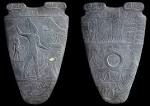
Narmer Palette |
Narmer Palette (archaeology) The Narmer Palette is discovered in Hierakonpolis, Egypt. |
|
30 Nov 1897

Annie Scott Dill Maunder |
Annie Scott Dill Maunder (astronomy) Annie Scott Dill Maunder photographs the sun's outer corona during a solar eclipse in India. |
|
30 Nov 1897

433 Eros |
433 Eros (astronomy) 433 Eros, the first near-Earth object, is discovered. |
|
30 Nov 1897
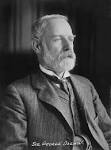
George Darwin |
George Darwin (astronomy) George Darwin proposes that the Earth and Moon had once been one body. |
|
30 Nov 1897

William Ramsay |
William Ramsay (chemistry) William Ramsay and Morris Travers discover Neon,Krypton (May 30) and Xenon (July 12). |
|
30 Nov 1897

Emil Fischer |
Emil Fischer (chemistry) Emil Fischer synthesizes purine. |
|
30 Nov 1897
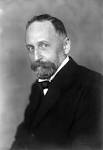
Richard Willstätter |
Richard Willstätter (chemistry) Richard Willstätter analyzes the structure of the cocaine molecule in a synthesis derived from tropinone. |
|
30 Nov 1897

Ladislaus Bortkiewicz |
Ladislaus Bortkiewicz (mathematics) Ladislaus Bortkiewicz publishes a book about the Poisson distribution, The Law of Small Numbers, first noting that events with low frequency in a large population follow a Poisson distribution even when the probabilities of the events vary. |
|
30 Nov 1897

Peter Borovsky |
Peter Borovsky (medicine) Peter Borovsky, a Russian military surgeon working in Tashkent, publishes the first accurate description of the causative parasite for "Sart sore" (later known as leishmaniasis). |
|
30 Nov 1897
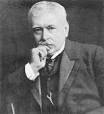
Patrick Manson |
Patrick Manson (medicine) Patrick Manson publishes Tropical Diseases: a manual of the diseases of warm climates in London, a pioneering English language textbook in tropical medicine. |
|
30 Nov 1897
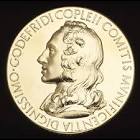
Copley Medal |
Copley Medal (awards) Copley Medal: William Huggins |
|
30 Nov 1897
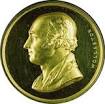
Wollaston Medal |
Wollaston Medal (awards) Wollaston Medal for Geology: Ferdinand Zirkel |
|
30 Jan 1898
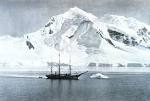
Belgian Antarctic Expedition |
Belgian Antarctic Expedition (exploration) February 13 – The Belgian Antarctic Expedition led by Adrien de Gerlache on the Belgica discovers the Gerlache Strait (originally named the Belgica Strait) and Lemaire Channel off the west coast of Graham Land on the Antarctic Peninsula. The expedition then becomes the first to winter in Antarctica. |
|
11 Feb 1898
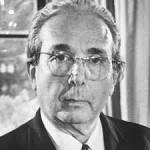
Leó Szilárd |
birth Leó Szilárd Leó Szilárd, Hungarian-American physicist (d. 1964) |
|
25 Feb 1898
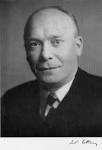
William Astbury |
birth William Astbury William Astbury (died 1961), English physicist and molecular biologist. |
|
03 Mar 1898

Emil Artin |
birth Emil Artin Emil Artin (died 1962), Austrian-born mathematician. |
|
12 Mar 1898
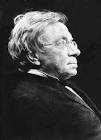
Johann Balmer |
death Johann Balmer Johann Balmer (born 1825), Swiss mathematician. |
|
15 Mar 1898
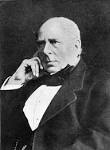
Henry Bessemer |
death Henry Bessemer Henry Bessemer (born 1813), English inventor of the Bessemer process for steelmaking. |
|
26 Mar 1898

South Africa |
South Africa (biology) The Sabi Game Reserve in South Africa, the first officially designated game reserve, is created. |
|
12 Apr 1898

Marie Curie’s discoveries announced |
Marie Curie’s discoveries announced In 1898, Marie Curie observed a meeting of the French Academy of Sciences, where one of her teachers, Prof. Gabriel Lippmann announced her discovery of substances much more radioactive than uranium. Working since Dec 1897, she had verified that the radiant activity of various compounds was directly related to the amount of uranium present, whether solid, powdered, or in a wet state. She proposed the radiant activity was an atomic property, for it was independent of physical or chemical state. She announced that in pitchblende and charcolite she had discovered compounds even more active than uranium. (She had not, in fact, found a new element, but was the first to identify thorium’s powerful radioactivity.) |
|
10 May 1898

Vending machine law |
Vending machine law In 1898, the first vending machine law in the U.S. was enacted in Omaha, Neb. |
|
10 May 1898
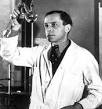
Rudolf Schoenheimer |
birth Rudolf Schoenheimer Born 10 May 1898; died 11 Sep 1941 at age 43. German-American biochemist whose technique of “tagging” molecules with radioactive isotopes made it possible to trace the paths of organic substances through animals and plants and revolutionized metabolic studies. |
|
29 May 1898

Nobel's will |
Nobel's will In 1898, the heirs of Alfred Nobel sign a "reconciliation agreement" so that lawyers and accountants can execute his will. The will's major bequest was to create the Nobel Prizes, but first, there were disputes to be settled. |
|
29 May 1898

Lyon Playfair, 1st Baron Playfair |
death Lyon Playfair, 1st Baron Playfair Lyon Playfair, 1st Baron Playfair (born 1818), Scottish chemist. |
|
23 Jun 1898

Royal Army Medical Corps |
Royal Army Medical Corps (medicine) Royal Army Medical Corps formed within the British Army. |
|
25 Jun 1898

Ferdinand Cohn |
death Ferdinand Cohn Died 25 Jun 1898 at age 70 (born 24 Jan 1828). Ferdinand (Julius) Cohn was a German naturalist and botanist who is considered one of the founders of bacteriology and known for his studies of algae, bacteria, and fungi, insect epidemics and plant diseases. From his early studies of microscopic life he developed theories of the bacterial causes of infectious disease and recognized bacteria as plants. He showed that the protoplasm was almost identical in plant and animal cells. He founded the science of bacteriology with a three volume treatise published in 1872 which classified bacteria into genera and species. Cohn gave Robert Koch a position in his lab and aided him in preparing Koch's famous work on anthrax. |
|
26 Jun 1898

Willy Messerschmitt |
birth Willy Messerschmitt Willy Messerschmitt (died 1978), German aeronautical engineer. |
|
28 Jul 1898
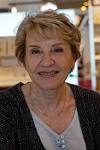
Marie |
Marie (chemistry) Marie and Pierre Curie announce discovery of a substance they call Polonium. |
|
29 Jul 1898

John Alexander Newlands |
death John Alexander Newlands Died 29 Jul 1898 at age 60 (born 26 Nov 1837). John Alexander Reina Newlands was an English chemist who first established an order of elements by the atomic weights, and observed a periodicity in the properties. Every eighth element has similar properties, hence he named the Law of Octaves (7 Feb 1863). It took another quarter century, and the work of others, such as Dmitry Mendeleev, for the significance of his discovery to be recognized. |
|
29 Jul 1898

Anthony John Arkell |
birth Anthony John Arkell Born 29 Jul 1898; died 26 Feb 1980 at age 81. English historian and Egyptologist who was one of the pioneers of archaeological search in Sudan where, as an outstanding colonial administrator, he combined a passion for the past with a humanitarian concern for the peoples of modern Africa. After serving in the Royal Air Force, Arkell joined the Sudan Political Service (1920) and set about abolishing the slave trade between the Sudan and Ethiopia. He was appointed commissioner for archaeology and anthropology in 1938 and undertook several digs that opened up the previously unknown field of Sudanese prehistory. He returned to England in 1948, and wrote his authoritative A History of the Sudan From the Earliest Times to 1821 (1955). This book gave a comprehensive history of the Sudan running from the Stone Age to the advent of the Turks in 1821, based upon his archeological and anthropological findings. He also wrote The Prehistory of the Nile Valley. |
|
29 Jul 1898

Isidor Isaac Rabi |
birth Isidor Isaac Rabi Born 29 Jul 1898; died 11 Jan 1988 at age 89. Austrian-American physicist who was awarded the Nobel Prize for Physics in 1944 for his invention (in 1937) of the atomic and molecular beam magnetic resonance method of measuring magnetic properties of atoms, molecules, and atomic nuclei. He spent most of his life at Columbia University (1929-67), where he performed most of his pioneering research in radar and the magnetic moment associated with electron spin in the 1930s and 1940s. His Nobel-winning work led to the invention of the laser, the atomic clock, and diagnostic uses of nuclear magnetic resonance. He originated the idea for the CERN nuclear research center in Geneva (founded 1954). |
|
24 Aug 1898

Albert Claude |
birth Albert Claude Born 24 Aug 1898; died 22 May 1983 at age 84. Belgian-American cytologist who was awarded the 1974 Nobel Prize for Physiology or Medicine for discoveries concerning the structural and functional organization of the cell (shared with Christian de Duve and George E. Palade). With cell fractionization methods he developed using a high-powered centrifuge, Claude was able to separate various organelles in the nucleus of the living cell. He was able to show that mitochondria are the respiration centres of the cell. From 1942, he applied electron microscopy to further elucidate the structure of cells. Modern cell biology is partly based on his work. |
|
27 Aug 1898

John Hopkinson |
death John Hopkinson John Hopkinson (born 1849), English electrical engineer (killed in climbing accident). |
|
10 Sep 1898
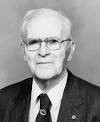
Waldo Semon |
birth Waldo Semon Waldo Semon (died 1999), American inventor. |
|
14 Sep 1898

William Seward Burroughs |
death William Seward Burroughs William Seward Burroughs (born 1855), American inventor of the adding machine. |
|
28 Oct 1898

French |
French (medicine) French serial killer Joseph Vacher is convicted, based largely on forensic evidence presented by Alexandre Lacassagne. |
|
16 Nov 1898

Warren Sturgis McCulloch |
birth Warren Sturgis McCulloch Warren Sturgis McCulloch (died 1969), American neurophysiologist and cybernetician. |
|
20 Nov 1898

Sir John Fowler |
death Sir John Fowler Died 20 Nov 1898 at age 81 (born 15 Jul 1817). Sir John Fowler, 1st Baronet was an English civil engineer who helped design and build the London Metropolitan Railway, thus pioneering the original London underground. He was a railway consultant from 1844, and later was engaged in river improvement and dock construction. He designed the Pimlico Railway Bridge which carried the first railway across the Thames (1860) and was consulting engineer to Ismail Pasha, the Khedive of Egypt (1871-79). He was joint designer (with Sir Benjamin Baker) of the Forth Railway Bridge in Scotland (1882-90), for which work he was knighted (1890). |
|
20 Nov 1898

Sir John Fowler, 1st Baronet |
death Sir John Fowler, 1st Baronet Sir John Fowler, 1st Baronet (born 1817), English civil engineer. |